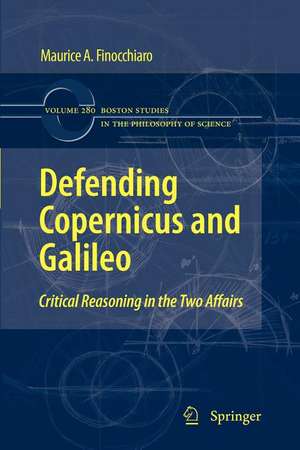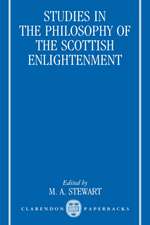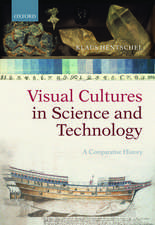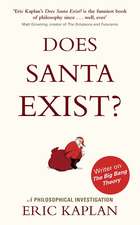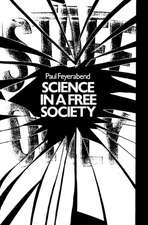Defending Copernicus and Galileo: Critical Reasoning in the Two Affairs: Boston Studies in the Philosophy and History of Science, cartea 280
Autor Maurice A. Finocchiaroen Limba Engleză Paperback – 4 mai 2012
| Toate formatele și edițiile | Preț | Express |
|---|---|---|
| Paperback (1) | 949.23 lei 6-8 săpt. | |
| SPRINGER NETHERLANDS – 4 mai 2012 | 949.23 lei 6-8 săpt. | |
| Hardback (1) | 955.40 lei 6-8 săpt. | |
| SPRINGER NETHERLANDS – 17 feb 2010 | 955.40 lei 6-8 săpt. |
Din seria Boston Studies in the Philosophy and History of Science
- 18%
 Preț: 944.19 lei
Preț: 944.19 lei - 15%
 Preț: 646.75 lei
Preț: 646.75 lei - 15%
 Preț: 646.75 lei
Preț: 646.75 lei - 15%
 Preț: 699.28 lei
Preț: 699.28 lei - 18%
 Preț: 736.50 lei
Preț: 736.50 lei -
 Preț: 500.01 lei
Preț: 500.01 lei - 15%
 Preț: 643.16 lei
Preț: 643.16 lei - 15%
 Preț: 650.69 lei
Preț: 650.69 lei - 15%
 Preț: 634.18 lei
Preț: 634.18 lei - 15%
 Preț: 642.68 lei
Preț: 642.68 lei -
 Preț: 391.40 lei
Preț: 391.40 lei -
 Preț: 383.33 lei
Preț: 383.33 lei - 18%
 Preț: 944.19 lei
Preț: 944.19 lei - 18%
 Preț: 955.56 lei
Preț: 955.56 lei - 15%
 Preț: 643.65 lei
Preț: 643.65 lei -
 Preț: 392.75 lei
Preț: 392.75 lei - 18%
 Preț: 1229.10 lei
Preț: 1229.10 lei - 18%
 Preț: 1238.23 lei
Preț: 1238.23 lei - 18%
 Preț: 951.29 lei
Preț: 951.29 lei - 18%
 Preț: 1223.25 lei
Preț: 1223.25 lei - 18%
 Preț: 1225.79 lei
Preț: 1225.79 lei - 18%
 Preț: 1226.42 lei
Preț: 1226.42 lei - 18%
 Preț: 1236.82 lei
Preț: 1236.82 lei - 15%
 Preț: 644.49 lei
Preț: 644.49 lei - 18%
 Preț: 1231.78 lei
Preț: 1231.78 lei - 15%
 Preț: 644.30 lei
Preț: 644.30 lei - 18%
 Preț: 957.62 lei
Preț: 957.62 lei - 18%
 Preț: 1222.49 lei
Preț: 1222.49 lei - 18%
 Preț: 947.50 lei
Preț: 947.50 lei - 18%
 Preț: 1833.95 lei
Preț: 1833.95 lei - 18%
 Preț: 1227.99 lei
Preț: 1227.99 lei - 18%
 Preț: 947.35 lei
Preț: 947.35 lei
Preț: 949.23 lei
Preț vechi: 1157.60 lei
-18% Nou
Puncte Express: 1424
Preț estimativ în valută:
181.63€ • 189.64$ • 150.33£
181.63€ • 189.64$ • 150.33£
Carte tipărită la comandă
Livrare economică 05-19 aprilie
Preluare comenzi: 021 569.72.76
Specificații
ISBN-13: 9789400731646
ISBN-10: 9400731647
Pagini: 396
Ilustrații: XLIII, 350 p.
Dimensiuni: 155 x 235 x 21 mm
Greutate: 0.55 kg
Ediția:2009
Editura: SPRINGER NETHERLANDS
Colecția Springer
Seria Boston Studies in the Philosophy and History of Science
Locul publicării:Dordrecht, Netherlands
ISBN-10: 9400731647
Pagini: 396
Ilustrații: XLIII, 350 p.
Dimensiuni: 155 x 235 x 21 mm
Greutate: 0.55 kg
Ediția:2009
Editura: SPRINGER NETHERLANDS
Colecția Springer
Seria Boston Studies in the Philosophy and History of Science
Locul publicării:Dordrecht, Netherlands
Public țintă
ResearchCuprins
Defending Copernicus.- The Geostatic World View.- The Copernican Controversy.- Galileo’s Stances Toward Copernican Astronomy.- Galilean Critiques of the Biblical Objection.- Galileo on the Mathematical Physics of Terrestrial Extrusion.- Galilean Rationality in the Copernican Revolution.- Defending Galileo.- The Trial of Galileo, 1613–1633.- The Galileo Affair, 1633–1992.- Galileo Right for the Wrong Reasons?.- Galileo as a Bad Theologian?.- Galileo as a Bad Epistemologist?.- Galileo as a Symbol of Science Versus Religion?.
Recenzii
From the reviews:
“Defending Copernicus and Galileo is an important addition to Maurice Finocchiaro’s significant corpus of writings, translations and edited works dealing with Galileo … . the book is primarily about Galileo and his defense of Copernicus. … this apparatus of fine distinctions serves not only as an expository device, but also an evaluative or advocacy purpose.” (Peter Slezak, Science and Education, Vol. 20, 2011)
“The book is aimed at presenting and defending a tentative interpretation and evaluation of the two Galileo affaires … . Overall, the book is very well-written, very well-documented, and it consists of very lucid explanations of the many different positions, arguments and criticisms that can and have been put forward during the period of four hundred years in which the two Galileo affairs have developed so far. … it is a true Fundgrube for further research on the subject … .” (Jean H. M. Wagemans, Argumentation, Vol. 25, 2011)
“The meritof this work is that it approaches the whole affair by attempting to offer a defense of Galileo by employing the same critical reasoning that Galileo himself used in defending Copernicus. … it makes an important contribution to the very meaning of science by studying the origins of modern science in Galileo’s research techniques. … It will be very helpful to Galileo scholars.” (George V. Coyne, The Catholic Historical Review, Vol. 98 (2), April, 2012)
“Defending Copernicus and Galileo is an important addition to Maurice Finocchiaro’s significant corpus of writings, translations and edited works dealing with Galileo … . the book is primarily about Galileo and his defense of Copernicus. … this apparatus of fine distinctions serves not only as an expository device, but also an evaluative or advocacy purpose.” (Peter Slezak, Science and Education, Vol. 20, 2011)
“The book is aimed at presenting and defending a tentative interpretation and evaluation of the two Galileo affaires … . Overall, the book is very well-written, very well-documented, and it consists of very lucid explanations of the many different positions, arguments and criticisms that can and have been put forward during the period of four hundred years in which the two Galileo affairs have developed so far. … it is a true Fundgrube for further research on the subject … .” (Jean H. M. Wagemans, Argumentation, Vol. 25, 2011)
“The meritof this work is that it approaches the whole affair by attempting to offer a defense of Galileo by employing the same critical reasoning that Galileo himself used in defending Copernicus. … it makes an important contribution to the very meaning of science by studying the origins of modern science in Galileo’s research techniques. … It will be very helpful to Galileo scholars.” (George V. Coyne, The Catholic Historical Review, Vol. 98 (2), April, 2012)
Textul de pe ultima copertă
Although recent works on Galileo’s trial have reached new heights of erudition, documentation, and sophistication, they often exhibit inflated complexities, neglect 400 years of historiography, or make little effort to learn from Galileo. This book strives to avoid such lacunae by judiciously comparing and contrasting the two Galileo affairs, that is, the original controversy over the earth’s motion ending with his condemnation by the Inquisition in 1633, and the subsequent controversy over the rightness of that condemnation continuing to our day. The book argues that the Copernican Revolution required that the hypothesis of the earth’s motion be not only constructively supported with new reasons and evidence, but also critically defended from numerous old and new objections. This defense in turn required not only the destructive refutation, but also the appreciative understanding of those objections in all their strength. A major Galilean accomplishment was to elaborate such a reasoned, critical, and fair-minded defense of Copernicanism. Galileo’s trial can be interpreted as a series of ecclesiastic attempts to stop him from so defending Copernicus. And an essential thread of the subsequent controversy has been the emergence of many arguments claiming that his condemnation was right, as well as defenses of Galileo from such criticisms. The book’s particular yet overarching thesis is that today the proper defense of Galileo can and should have the reasoned, critical, and fair-minded character which his own defense of Copernicus had.
Caracteristici
Examines both Galileo’s original trial (1613-1633) and the subsequent controversy over its propriety (1633-1992) Stresses the point of view of critical reasoning and argumentation, thus providing a case study of their role in the Copernican Revolution and the Galileo affair Elaborates Galileo’s own approach in the original affair, using it as a model to understand and assess the subsequent affair Articulates a particular yet overarching thesis: that today the defense of Galileo should have the reasoned, critical, and fair-minded character which his own defense of Copernicus had Concerned with avoiding not only crude popular oversimplifications, but also inflated scholarly complexities
